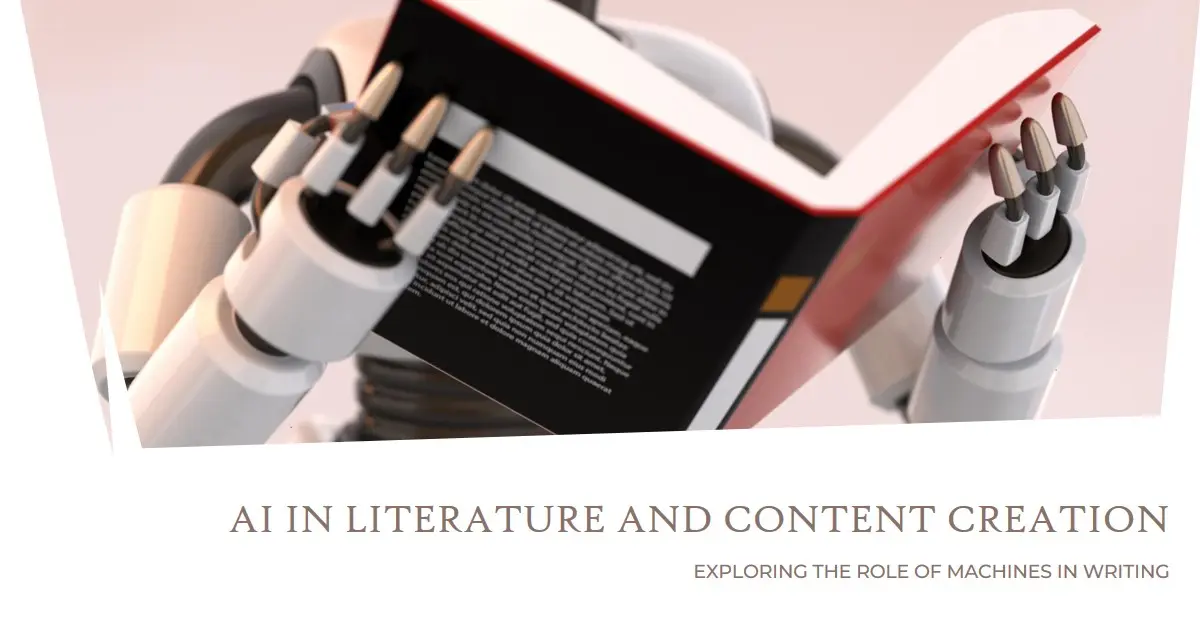In the realm of creativity, where human imagination has long held sway, a new player has emerged – Artificial Intelligence (AI). Traditionally, the act of writing, whether it be crafting a novel, composing a poem, or generating content, has been a distinctly human endeavor. However, with the advent of advanced AI technologies, the lines between human and machine-generated content are becoming increasingly blurred.
The Evolution of AI in Literature
The journey of AI in writing has been marked by significant milestones. Initially, AI was employed for simple tasks like grammar checking and spell correction. As technology progressed, so did the capabilities of AI, leading to the development of sophisticated language models capable of understanding context, semantics, and generating coherent and contextually relevant text.
One notable breakthrough came with OpenAI’s GPT (Generative Pre-trained Transformer) models, including GPT-3. These models are trained on massive amounts of diverse textual data, enabling them to grasp the nuances of language and produce human-like text. GPT-3, in particular, boasts a staggering 175 billion parameters, making it one of the most powerful language models to date.
AI as Writing Assistant
One of the primary applications of AI in writing is its role as a writing assistant. AI tools, equipped with natural language processing capabilities, can assist writers in various ways. From suggesting synonyms and improving sentence structures to identifying grammatical errors, these tools aim to enhance the overall quality of writing.
Platforms like Grammarly and ProWritingAid leverage AI to provide real-time suggestions and feedback as users write. These tools not only correct grammatical mistakes but also offer insights into writing style, tone, and clarity. Writers can benefit from these AI-driven assistants to refine their work and develop a more polished and professional writing style.
AI in Content Creation
Beyond mere assistance, AI has also stepped into the realm of content creation. Businesses and content creators are leveraging AI tools to generate written content for websites, blogs, and marketing materials. Content creation platforms like OpenAI’s Codex allow users to input prompts and receive machine-generated content as output.
This raises a pertinent question – can machines truly capture the essence of creative expression inherent in writing? While AI excels at generating coherent and contextually appropriate text, the emotional depth, personal experiences, and unique perspectives that define human-authored content remain elusive to machines. However, the capabilities of AI in content creation are evolving rapidly, prompting discussions about the ethical implications of machine-generated content.
The Ethical Landscape of AI-Generated Content
As AI becomes more proficient in creating content, ethical considerations come to the forefront. Questions surrounding plagiarism, authenticity, and the potential for misuse of AI-generated content demand careful scrutiny.
On one hand, AI can be a valuable tool for writers, helping them overcome creative blocks, generating ideas, and even collaborating on certain aspects of content creation. On the other hand, the indiscriminate use of AI-generated content without proper attribution or oversight raises concerns about intellectual property and the integrity of creative work.
In the academic and journalistic spheres, where originality is paramount, the use of AI to generate content poses unique challenges. Striking a balance between leveraging AI tools for efficiency and ensuring the authenticity of human-authored work requires clear guidelines and ethical frameworks.
Challenges and Opportunities
While the integration of AI in writing presents exciting opportunities, it is not without its challenges. The potential for biased content generation, the need for robust ethical guidelines, and concerns about job displacement in the writing and editing industry are areas that require careful consideration.
Moreover, the challenge of maintaining a balance between efficiency and creativity remains. AI, with its ability to generate content rapidly, might inadvertently prioritize quantity over quality. Striking a balance between speed and creativity is crucial to ensure that the essence of human-authored content is not diluted in the pursuit of efficiency.
Yet, within these challenges lie opportunities. Writers and content creators can leverage AI as a tool for ideation, inspiration, and refining their work. By embracing AI as a collaborative partner rather than a competitor, individuals in the creative field can unlock new possibilities and push the boundaries of what is achievable in writing.
The Future of Writing: Human Touch in a Digital Age
As AI continues to evolve, the future of writing holds exciting possibilities. The synergy between human creativity and AI capabilities has the potential to redefine the boundaries of what is considered possible in the realm of literature and content creation.
Rather than viewing AI as a replacement for human writers, it should be seen as a powerful ally that can augment and enhance the creative process. The future may witness a writing landscape where the distinction between human-authored and AI-generated content becomes less pronounced, leading to a diverse tapestry of creative works that seamlessly blend the best of both worlds.
In conclusion, the integration of AI in writing signifies a revolutionary shift in the creative landscape. Navigating ethical considerations and embracing collaboration are key. Enter Exavibes, a standout service provider merging human creativity with AI efficiency. With a commitment to authenticity, they redefine content creation, ensuring a harmonious coexistence where the human touch remains paramount in our digitally augmented age. Choose Exavibes for content that seamlessly blends innovation and a distinctly human perspective.



